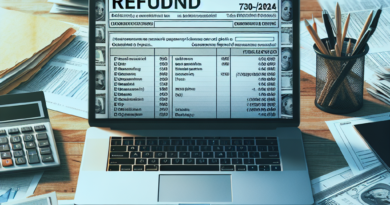How much money do you have to earn to avoid paying taxes?
How much money do you need to earn to not pay taxes in Italy?
Living without paying taxes is the dream of many Italians, considering the continuous requests for payment from the Tax Office.
Is there a way to avoid paying taxes? The answer is not straightforward and depends on the individual’s economic conditions.
Taxes vs.
Taxes: Understanding the Difference
Before moving forward, it’s crucial to understand the fundamental distinction between taxes and taxes in Italy.
While Italians tend to classify everything that must be paid as “taxes,” not everything paid to the Tax Office is a tax.
Taxes are always related to a service: an amount is paid in exchange for a service being received.
A classic example of a tax is Tari, the waste tax, the amount of which is determined by two factors: the size of the property and the occupants.
Therefore, it is a sum paid for the amount of waste collection and disposal service “used.”
Taxes, on the other hand, are paid to finance indivisible services (regardless of whether they are used or not) such as security, transportation, health care, education, etc.
The main taxes we all pay are income tax (IRPEF), value-added tax (VAT), and property tax (IMU).
Can Taxes Be Avoided?
Having made the necessary premise above, let’s see when taxes can be avoided.
Usually, tax exemptions are granted to population groups experiencing economic hardship or in specific situations provided for by regulations.
For the waste tax, for example, total or partial exemption from payment is provided for those with an ISEE within certain limits.
This is a regional benefit that varies depending on the place of residence.
Some taxes also provide for exemptions: for example, the property tax (IMU) is not paid for the primary non-luxury residence, and reductions are provided for uninhabitable properties or those of historical or artistic interest.
Reductions are also provided for free loan for use to direct family members (subject to certain conditions) or for lease at an agreed rent.
However, what is most important to know is when income taxes are not due, as they weigh heavily on Italians’ finances every year.
How Much Do You Need to Earn to Avoid Paying Taxes?
The tax that most heavily impacts Italians is IRPEF, the tax on personal income.
Earned income, pensions, and self-employment income are subject to IRPEF, a progressive tax with rates increasing as income rises.
From a minimum of 23% to a maximum of 43%, citizens are required to pay IRPEF on their earnings.
In some cases, however, citizens’ incomes are tax-exempt, and gross and net incomes coincide.
This applies to all incomes up to 8,500 euros falling within the no tax area.
Therefore, to avoid paying taxes, if you are an employee or retiree, you must earn 8,500 euros per year or less.
This is because for this income bracket, the deductions from work (or pension) reduce the tax due to zero.
The only drawback for those falling within the no tax area is not being entitled to a refund of incurred expenses (deductible expenses) because these must be subtracted from the tax paid: not having paid tax means no right to a refund.




